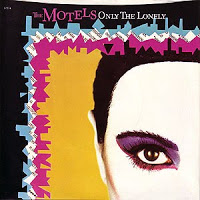Development
The Motels initially recorded darker pieces for their anticipated third studio album. However, with the exception of a reworked "Only the Lonely", the rest of the songs were shelved. The unreleased songs would eventually be featured on the 2011 album Apocalypso. [1] [2]
Lead singer Martha Davis wrote "Only the Lonely" on a guitar that was given to her by her late father—an administrator at the University of California, Berkeley, who found the instrument in Stiles Hall on the campus. [2] [3] She explained the song's inspiration in an interview with Beyond Race magazine: [4]
"...It's a song about empty success. It came about while the Motels were experiencing critical acclaim, traveling the world, riding in limos, and yet I was probably as sad as I had ever been. I was in a horrible relationship and had not yet recovered from my parents' death (I doubt one ever does). The contradiction of these two worlds was where 'Only the Lonely' lived... bittersweet."
In a 2019 interview, she contrasted the song's development process with her later hit "Suddenly Last Summer": [5]
"'Those two songs couldn't be more opposite," she said. "With ‘Only the Lonely’ I picked up my guitar and (the tune) was sitting there (as if it wrote itself). I played ‘Only the Lonely’ bada-boom, bada-boom.'"
This page is based on this
Wikipedia article Text is available under the
CC BY-SA 4.0 license; additional terms may apply.
Images, videos and audio are available under their respective licenses.
